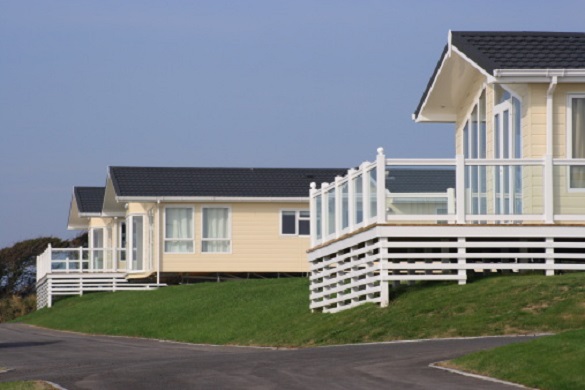University of Liverpool researchers lead major park home sector report
Published on

The largest study for 20 years of the park home sector, led by the University of Liverpool, recommends caution in changing the maximum sale commission fee of 10% without support for financially vulnerable parks alongside highlighting the need to professionalise site practices and consideration of a national enforcement body.
The study, involving researchers at the University of Liverpool and Sheffield Hallam University and commissioned by the Department for Levelling Up, Housing and Communities, gathered data about the park homes sector and assessed the impact of a change to the maximum commission fee on park home sales, a form of payment unique to the sector.
Park homes – also called mobile homes – represent a different form of homeownership. Unlike a traditional property, a park homeowner owns the structure of the home itself but not the ground it is located on and rents the pitch the home sits on from the site owner.
Park homes are also unique in that when a home owner sells their home they pay a commission to the site owner. The rate is set in legislation at a maximum level of 10% of the sale price. This fee is used by site owners to support the business including maintenance costs, repairs and profits.
The report found that there are just over 100,00 park homes in the UK located on 1,832 sites situated mainly in the South East and South West of England. Many are bought as retirement homes with the vast majority of park home household members aged 65 years or older.
Park home sites vary in size ranging from smaller sites with around 10 pitches to those with hundreds of pitches and are usually run as a single private business.
Researchers used a multi method approach to gather data about the sector and assess the potential impact of any proposed changes to the sales commission fee on both park home residents and site owners’ businesses.
They gathered feedback from residents, site owners, trade bodies, stakeholders and related organisations using postal surveys, online feedback and focus group sessions.
They also modelled a range of different financial options including changing the fee from the current maximum 10% to no fee at all to see how this would impact park home residents and park home businesses.
On the basis of this analysis the report authors recommend caution in reducing the maximum commission of 10% without support for more financially vulnerable parks.
They found that a reduction in the fee would increase the number of parks making a financial loss and disproportionally affect smaller parks.
Feedback from residents revealed a high level of dissatisfaction with the management of some parks and improvements are needed to ensure that the sector works fairly for both operators and residents.
The report also recommends exploration of enforcement actions against unscrupulous site ownership operation to ensure consistent and high-quality park operations.
Dr Richard Dunning, from the University’s Department of Geography & Planning who led the study, said: “This is the first large scale study of the park home sector for 20 years and using a range of research methods we were able to gather and analyse a considerable amount of evidence and data.
“Whilst a reduction in the maximum commission would benefit many residents, particularly those financially trapped, it would have a serious financial impact on some site owners’ business operations and loss of income would need to be met through other means.
“Our research also highlights the need for professionalisation of the sector which might include some form of national enforcement body to regulate standards across the sector.”
The report `The impact of a change in the maximum park home sale commission’ is published by the Department of Levelling Up, Housing and Communities.